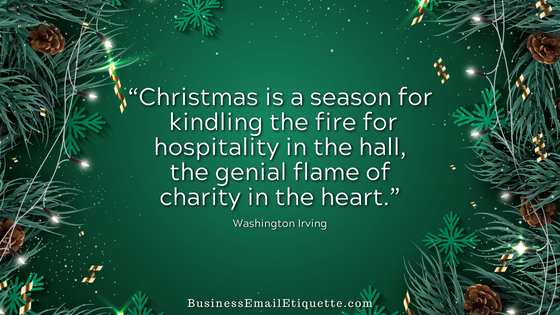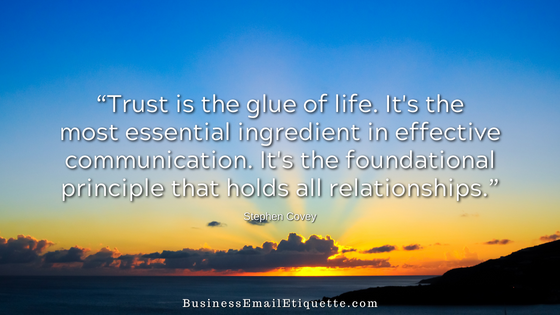Business Email and Spelling Names Correctly

Every so often, I am asked for advice on how to handle incorrect spelling of names. Most prefer that their names be spelled correctly but are not sure how to approach the topic.
Then there are those who are being addressed by a version of their name they simply do not use. How their name is displayed in the signature file or the From: field, which clearly shows the correct spelling of their name, is ignored.
They don’t want to appear picky or petty. But it is their name, after all. Unfortunately, correcting someone who hasn’t noticed how you spell your name is a delicate situation.
Sadly, many online users have the attention span of a gnat. Most are so concerned about typing what they want to say that they do not pay attention to details. It’s not that they are spelling your name wrong on purpose; they are just not paying attention.
One of the most essential details in business email communications is noticing the correct spelling of a contact’s name. How can you not notice how a contact’s name is spelled?
Lack of attention to detail can be the kiss of death in business. If someone can’t notice or spell a name correctly, you wonder what else they aren’t paying attention to.
When Your Name is Assumed or Misspelled…
What should you do? Should you correct the Sender? What’s the best approach?
Let me share my story with you.
My name is displayed on all my sites and in every email I send. It’s Judith. Some folks email me as “Judy” anyway. The thing is, I’m not a Judy.
If they knew me well enough to assume this informal approach and not address me as Judith, they would know that not all Cynthias are Cindys, not all James are Jim, and not all Anthonys are Tony.
I know two Anthonys. Neither one goes by Tony.
In most cases I do not correct these folks, I just continue to sign off as Judith and hope they notice. Some do — others do not.
What do you do if someone is misspelling your name? Unless legal documents are involved, just continue to include the correct spelling of your name and hope they take the hint.
Come to think about it, over the years, I have only gone back once or twice to note, “BTW, I spell my name Judith — I’m not a Judy. ;)” This was with folks who habitually ignored the details in my emails overall. While I’m not big on emoticons in business emails, I do use a wink to soften the correction.
You have to decide in which situations you want to make a formal correction. It is your name, and I don’t think asking business contacts to spell it correctly is too much to expect.
Typos Happen
Then there are the typos. We all make typos.
Just yesterday, I was in a chat with a girl named Adriana. Whenever I start a chat, I always greet the agent on the other side (proper chat etiquette.)
Well, I have a contact I type to all the time whose name is Andriana, and I typed that out of habit. I immediately apologized.
When we completed the chat, I thanked Adriana for her time, this time making sure I spelled her name correctly.
You Know What Happens When You Assume
People who take the liberty of being informal with new contacts risk that their informal approach may not be appreciated. After all, business formality is part of being viewed as a professional and showing respect.
Yes, there are exceptions to every rule. In my experience, some companies I work with clearly have a more relaxed and informal culture, and that’s fine. But, an informal approach is not an excuse to misuse or misspell names.
I wouldn’t consider informalizing someone’s name, nor would I address them differently than they note in their emails and sign-offs. Always take a moment to make sure that names and all the other aspects of your email are spelled correctly.
I have encountered contacts who have typed to me for years and suddenly started addressing me as Judy. They feel comfortable with me and, therefore, address me less formally.
Even if I am not a Judy, they mean well. So I don’t say anything and keep signing off as Judith.
Coincidentally, my experience shows that the contacts who do this tend to lack attention to detail and have anemic organizational skills. This is not a good look when everything you do in business, including email, is part of your branding efforts.
These are typically the same contacts who require me to resend, repeat, or, in many cases, reiterate conversations or information we discussed in the past because, well, they don’t pay attention to details. (This includes the fact that I’ve never identified myself as a Judy.)
What if you make that mistake?
So, you can see how something as simple as assuming how the informal version of someone’s name is spelled can leave a negative impression. Or set the tone to reflect the type of person you’ll be like to work with.
What do you do when you discover you’ve assumed incorrectly? Simply apologize. It is that easy.
Avoid any misconceptions by taking the time to make sure you are spelling the names of those you communicate with correctly. Don’t use an informal version of anyone’s name unless you know what that is because you’ve seen them use it.
Wait until you get an indication that a less formal version is okay. How will you know? When you see that they have signed off in an email using that less formal version. There’s your clue.






